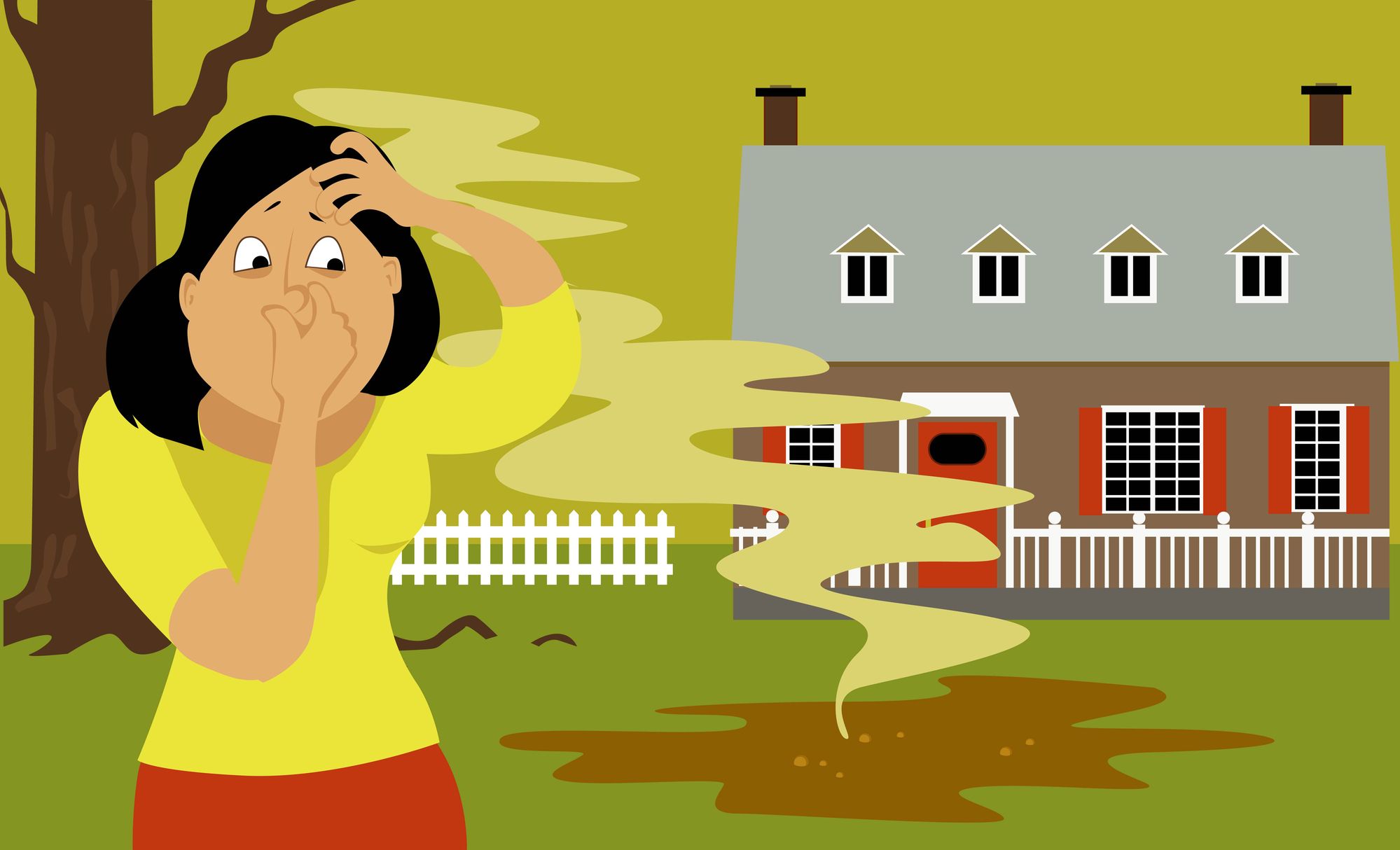Septic Tanks
Septic Tank Information
If you have lived in a house that is connected to a municipal or county sewer system the idea of having a septic tank can seem a little daunting. It needn’t be, as a septic system is very common to find in homes all across the country. Municipal and county sewer systems only make sense when there are enough homes clustered in a certain area .Once development moves further out from the more densely populated areas, the alternative to municipal sewer becomes a septic system.

How Does A Septic Tank Work?
A septic system works by taking all the waste water from the house, all the water from the showers, toilets, dishwasher, washing machine goes into a tank buried near the house.The tank holds the water until the solids sink to the bottom and oils and grease float to the top. The solids which are called sludge remain in the tank where naturally occurring bacteria break it down, this is why it is important not to use a lot of bleach or chemicals that will kill this bacteria. When the water reaches a certain level it flows out into a distribution box and is dispersed into perforated drainage pipes in what is called the leach or distribution field. The number of pipes is usually the same as the number of bedrooms in the house. Over time the sludge builds up and it becomes necessary to pump the tank.
Septic systems have evolved as new techniques and materials are used to make them more efficient and easier to install and maintain. The amount of land required to have a septic system has been reduced as these improvements take hold. Depending on where you live, the type of soil and location of the lot will all have a bearing on the size and type of septic system required for a property.
What Are The Pros and Cons Of Owning a Septic System
The first obvious benefit to owning a septic system is no utility bills for sewage from the city or county. This can be a significant saving over the years especially if compared to a private water/sewer company whose bills can be cause for some sticker shock. If you are purchasing a property with a septic system and a well, you eliminate one entire utility bill. Being a self contained system another benefit to owning a septic system is the independence from interruptions in service that can happen with a municipal system. Owning a property with a septic system necessitates having a larger lot to facilitate the leach field and repair field which has a minimum requirement in most cases. Folks who are searching for a new home and would like a larger lot usually means they will be looking at homes with a septic system. When municipal sewer systems are used, developers build more homes per acre thus reducing the size of the lots.
Septic Tank Installation
A typical septic system uses gravity, water flows into the tank in pipes installed on a slope and then the water flows into the pipes using the slope of the land. There are certain setbacks and minimum distances the tank, but primarily the drainfield must adhere to. The following must be taken into consideration for the placement of the tank and drainfield. 
- Property Line
- Well
- Structures
- Large Trees
- Lakes, Streams, Creeks Etc.
- Driveways/Parking
- Swimming Pools
- Neighbors Property
In some cases it will be necessary to install a pump to the system to move the water to the drainfield. When purchasing a property with a septic system it is important to take note of the setbacks listed. If you plan on putting in a swimming pool, you will need to determine if that is even possible. It is not recommended that you drive on the drainfield, or place heavy objects such as sheds on the lines. Additional parking pads or detached garages can also be affected by the septic system. A common problem for septic systems is roots from nearby trees growing in and around the pipes causing blockages.
Septic Tank Maintenance
Proper maintenance of a septic system is important to ensure you get years of trouble free use from it and they actually don’t need a lot of maintenance. Using the system at or under the capacity it was designed for goes a long way towards avoiding problems. The best way to prevent problems in a septic system is to only put in it what it was designed for. Certain household items should not be discarded in the sink, items such as cooking oil, paint, bleach or chemicals will have an adverse effect on how the system operates. Only items that are biodegradable should be discarded in the sink or toilets.
Septic systems can fail from time to time and there can be a number of reasons for this to happen. If the area where the drainfield is located starts to constantly be water logged or if you notice bad odors coming from the ground are signs the system is in trouble. If toilets are slow to flush or get backed up are also indicators you have a problem. This unfortunately is usually an expensive problem to fix. Many septic systems come with what is know as a repair field which is where a new drainfield is dug should the original fail.
Septic Tank Pumping & Cleaning
Septic tanks do need to be pumped out from time to time and the frequency of this depends primarily on how many people live in the house and how much water is used on a regular basis. Septic tank pumping costs a couple of hundred dollars usually depending on the size and condition of the tank Septic tanks should be pumped and cleaned on a regular basis. How regular depends on how many people are using it, how much water they are using and if the system is being used properly. There is no hard and fast rule for septic tank pumping and you will hear people say every two years or every five years and then you will hear of people who’ve owned a septic system for years and years and never had it pumped, wouldn’t even know where it was to begin with.
Septic Tank Cost
The cost of a septic tank will depend upon a number of factors. The number of beds in the house will play a large role in determining the cost for your septic tank. Prepare to spend anywhere from $5,000 to $15,000 depending on the size of your house and number of bedrooms.
The national average cost for a septic tank installation is just over $5,000. Installation costs for a septic tank will be between $2,750 and $7,700 for the labor involved. The cost for a 1,000 gallon tank for a 3 bedroom home will range anywhere from $1,500 to just over $4,000 with the actual septic tank costing anywhere from $500 to $1,000.
The septic tank total cost will also vary depending on the labor costs for the individual or company that's doing the work. The labor will be far more than the cost of the actual tank, so pay attention to how much the labor costs are when installing a new septic tank.
